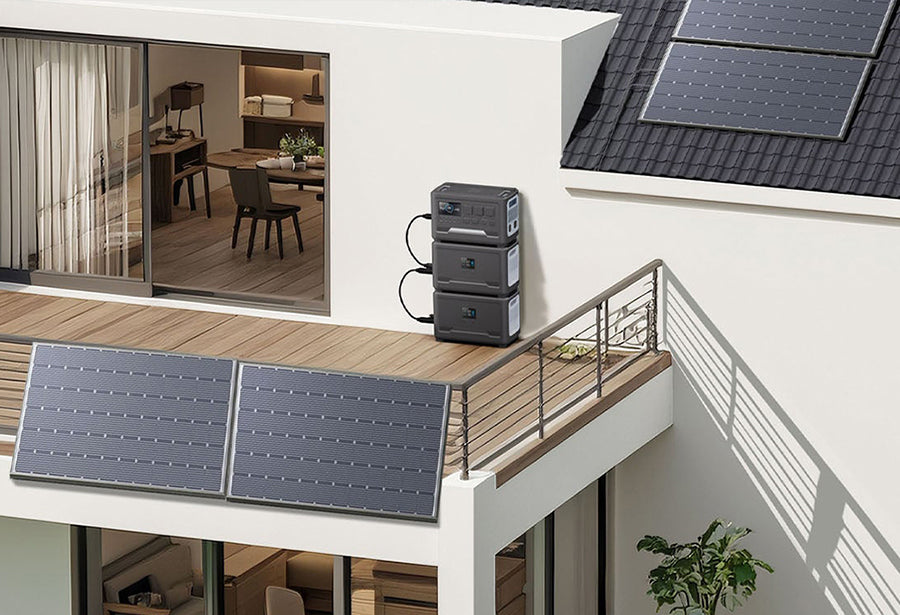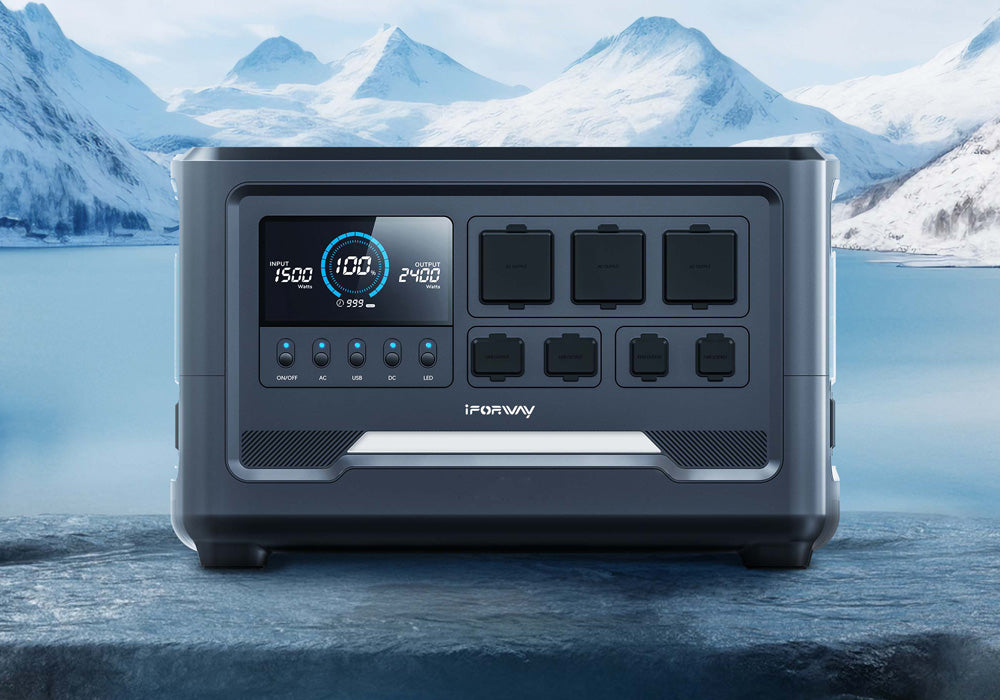
У сучасному технічному світі розуміння ємності акумулятора є важливішим, ніж будь-коли. Незалежно від того, чи ви обираєте смартфон, портативну електростанцію чи накопичувач енергії, знання того, як інтерпретувати різні одиниці, допоможе вам прийняти розумніші рішення. Сьогодні iFORWAY проведе вас через процес перетворення ват-годин (Вт·год) у міліампер-години (мА·год) і пояснить, чому ці знання важливі.
Що таке ват-години (Вт-год)?
Ватт-години (Вт·год) — це загальна міра енергії, яка показує, скільки енергії може забезпечити акумулятор за певний період часу. Простіше кажучи, 1 ват-година означає, що батарея може забезпечити 1 ват енергії протягом однієї години.
Наприклад, якщо ваш пристрій iFORWAY використовує акумулятор ємністю 20 Вт·год, він може забезпечити 20 Вт енергії протягом однієї години. Ця одиниця особливо корисна при описі ємності зберігання енергії більших пристроїв, таких як портативні електростанції та резервні батареї.
Що таке міліампер-години (мАг)?
Міліампер-години (мАг) вимірюють ємність акумулятора та зазвичай використовуються для менших пристроїв, таких як смартфони, навушники та компактні інструменти. mAh говорить вам, як довго акумулятор може забезпечувати певний струм. Наприклад, акумулятор на 1000 мАг може забезпечити 1 ампер струму протягом однієї години або 1 міліампер протягом 1000 годин.
Цей пристрій особливо корисний під час оцінки терміну служби батареї портативної електроніки.
Навіщо конвертувати ват-години в міліампер-години?
Під час придбання нових пристроїв або заміни батареї вам може знадобитися конвертувати ват-години (Вт-год) у міліампер-години (мА-год), щоб порівняти ємність акумуляторів різних продуктів. Наприклад, портативні рішення iFORWAY для накопичення енергії часто використовують Вт-год, тоді як смартфони та інші менші пристрої використовують мА-год.
Розуміючи ці перетворення, ви зможете краще порівняти продуктивність акумулятора та вибрати найкращий варіант для своїх потреб.
Як перетворити ват-години (Вт·год) у міліампер-години (мА·год)
Щоб перетворити ват-години (Вт·год) у міліампер-години (мА·год), потрібна напруга акумулятора (В). Використовуйте таку формулу:
Де:
- Wh — енергія батареї у ват-годинах.
- V - напруга акумулятора.
- mAh — кінцева ємність у міліампер-годинах.
приклад:
Якщо у вас акумулятор ємністю 5 Вт*год з напругою 5 вольт:
Це означає, що батарея ємністю 5 Вт·год, що працює на 5 В, має ємність 1000 мА·год.
Таблиця перетворення батареї iFORWAY
| Ватт-години (Вт·год) | Напруга (В) | Міліампер-години (мАг) |
|---|---|---|
| 1 Вт-год | 3,7 В | 270,27 мАг |
| 5 Вт-год | 3,7 В | 1351,35 мАг |
| 10 Вт-год | 3,7 В | 2702,7 мАг |
| 20 Вт·год | 3,7 В | 5405,41 мАг |
| 50 Вт·год | 3,7 В | 13 513,51 мАг |
| 100 Вт*год | 3,7 В | 27 027,03 мАг |
Як перетворити кіловат-години (кВт-год) на міліампер-години (мА-год)
Для акумуляторів більшої ємності, таких як ті, які використовуються в домашніх системах зберігання енергії iFORWAY, ви часто побачите кіловат-години (кВт·год). Щоб перетворити кВт-год в мА-год, використовуйте цю формулу:
приклад:
Якщо у вас акумулятор ємністю 0,005 кВт/год з напругою 5 вольт:
Це означає, що акумулятор ємністю 0,005 кВт/год, що працює на 5 вольт, має ємність 1000 мА/год.
Загальна таблиця перетворення кВт-год на мА-год
| Кіловат-години (кВт·год) | Ампер-години (Ah) | Міліампер-години (мАг) |
|---|---|---|
| 0,01 кВт/год | 0,83 Аг | 830 мАг |
| 0,1 кВт/год | 8,33 Аг | 8330 мАг |
| 0,5 кВт/год | 41,67 Аг | 41 670 мАг |
| 1 кВт/год | 83,33 Аг | 83330 мАг |
| 2 кВт/год | 166,67 Аг | 166 670 мАг |
Як розрахувати Wh з мАг
Якщо ви знаєте мАг і напругу батареї, ви можете перетворити їх у Вт-год за цією формулою:
приклад:
Якщо у вас акумулятор на 10 000 мАг з напругою 3,7 В:
Висновок: iFORWAY допоможе вам зрозуміти продуктивність батареї
Розуміння співвідношення між ват-годинами (Вт-год) і міліампер-годинами (мА-год) дає вам змогу робити більш розумний вибір при виборі батарей або пристроїв. iFORWAY пропонує високопродуктивні акумуляторні рішення, які задовольняють як портативні пристрої, так і великі потреби в накопиченні енергії.
Незалежно від того, купуєте ви портативну електростанцію чи зарядний пристрій для смартфона, знання цих методів перетворення гарантує, що ви виберете правильний акумулятор, який відповідає вашим потребам.
Маєте запитання щодо ємності акумулятора чи продуктів iFORWAY? Зв’яжіться з iFORWAY сьогодні, щоб відкрити для себе наші інноваційні енергетичні рішення та насолодитися розумнішим, більш стійким майбутнім!
Recent Posts
Blog Tags
How Competitive Electricity Markets Help Business Energy Buyers Optimize Costs and Efficiency
As the future of business energy procurement moves toward greater sustainability and efficiency, competitive electricity markets will play a vital role in shaping the energy solutions of tomorrow.
Global Portable Power Station Market Analysis: Growth Trends, Size Forecast
The portable power station market is experiencing rapid growth, driven by the demand for clean energy, the surge in outdoor activities, and increasing awareness of power security. In the future, portable power stations will evolve toward higher power, smart features, and multifunctionality, providing users around the world with more reliable energy solutions.








